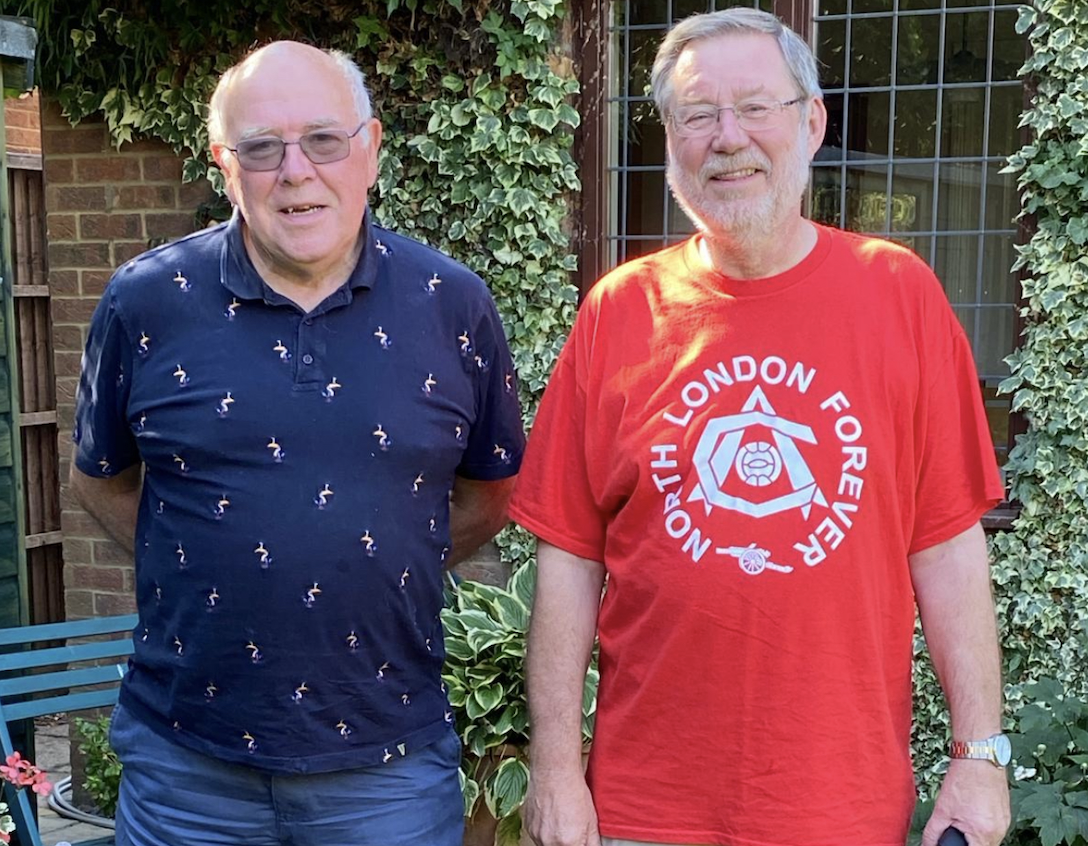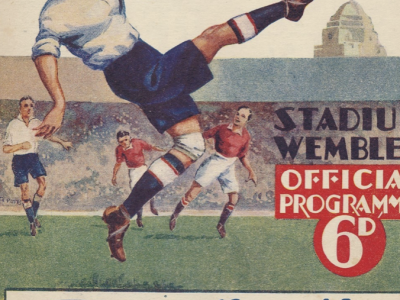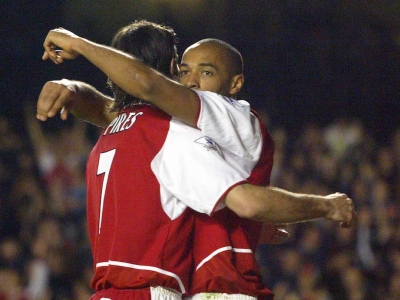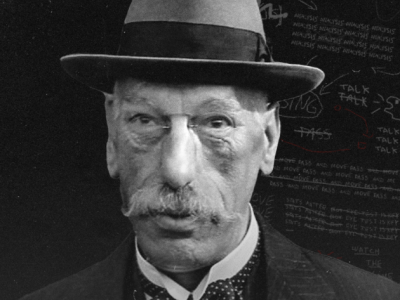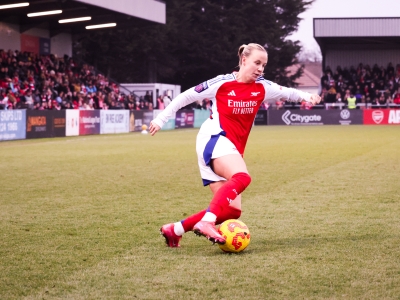Our game against Liverpool was dedicated to the fight against Prostate Cancer, writes Peter Le Beau.
The game had a great outcome but please ensure from a health perspective you get a good outcome too.
I've been writing for the Gooner Fanzine for 36 years but the article I'm about to write is probably the most important piece I've ever written.
I'm currently undergoing treatment for Prostate Cancer.
I didn’t take much notice of the condition until recently but it’s worth considering a few facts about it.
In the UK every 45 minutes one man dies from prostate cancer – that's more than 12,000 men every year.
One in eight men will be diagnosed with prostate cancer in their lifetime and nearly half a million men are living with and after prostate cancer*.
I am 73 years old and have supported Arsenal passionately for 66 of those years.
I was last in hospital in 1980 to have a wisdom tooth out and I’ve been fortunate enough to enjoy pretty good health for most of my life – that was, until last year.
I knew of friends and relatives who had prostate cancer. I had two uncles who died from it. Two years ago an old school friend also died from it.
But the penny hadn’t dropped that it could affect me seriously - and I would occasionally repeat the mantra that people die with prostate cancer, not of it.
Well that isn’t true for at least 12,000 men a year is it?
My good friend and fellow Gooner (and fellow Gooner Fanzine writer) Paul Brooker is a North Bank Lower season ticket holder and a regular away fan.
Paul was unfortunately diagnosed with the disease in 2022.
I will ask Paul to tell his story later but I was aware of his situation and I started to wonder if the slight difficulties I was having in ‘the waterworks area’ (funny how coy we get about bodily functions isn’t it!?) might be sinister.
Peter's story
I went to see our game at Craven Cottage last year and was aware that I needed to visit the loo more often.
A week later I went away for a family weekend in Derbyshire.
On the Sunday evening I was up most of the night trying to empty my bladder and my drive home to Kent was the most uncomfortable I’ve ever had.
On returning home I determined to sort the problem out as soon as possible and given the logjams at my practice I consulted a urologist privately.
He gave me some tests including a blood test, the PSA.
He phoned me the next day to say that my kidneys were under severe pressure with a retention problem. He admitted me to hospital wearing his NHS hat and I was catheterised. My first night in hospital was spent listening to us subside 4-1 at the Etihad…
I left hospital but returned shortly afterwards because the kidney problems exacerbated a diabetic crisis.
I spent a week in hospital around the time of the Coronation and had multiple scans and investigations.
I was found to have prostatic enlargement (similar to the King’s recent diagnosis) but an MRI scan later found I had suspected prostate cancer and it was confirmed when I had an operation to reduce the size of the prostate.
I had a PSA of 30 (very high) and the biopsy confirmed I had an aggressive tumour - but one which a CAT and bone scan had thankfully confirmed had not spread beyond the prostate. This suggests a much better prognosis.
Peter's treatment
The treatment for prostate cancer is normally hormone injections to shrink the tumour by starving it of testosterone (in my case every three month) and they will continue for two years in my case.
I started radiotherapy in mid-January and am just about to complete the course of twenty sessions at Maidstone Hospital. I’ve had quite superb care and have been enormously helped by the advice and preparation Paul was able to give me.
Let him relate some of his story.
Paul’s story
In 2021 I noticed that it was taking me longer to pee at night. I went to my doctor, who gave me a clinical examination, which appeared to indicate a growth. He ordered a PSA test which showed a value of 3.5 (3 is normal). He sent me to hospital where I had a biopsy.
This confirmed a tumour, first classified as a Gleason 6 (one of the more benign tumours). I entered the NHS cancer programme, under a consultant. Normally, it would have been an option just to observe the tumour to see if it was growing.
However as I changed hospitals (to get specialist care) a new team of pathologists looked at the biopsy and upgraded the tumour diagnosis to an intraductal tumour, a much more aggressive cancer.
The observation tumour was now off the agenda. The tumour had to be removed before it spread from the prostate to elsewhere in the body. The options were either surgery or radiotherapy. After discussions I chose radiotherapy.
The first thing was to start to get injections of an oestrogenic hormone, to run for two to three years.
Three months after the first injection, I started my radiotherapy at Addenbrookes Hospital, which consisted of 20 daily treatments with weekends off.
The staff at Addenbrookes Hospital were terrific and made the process easy. The first two weeks were easy, but I got progressively more tired as it got into weeks three and four.
The key test as to the success of the treatment is the PSA value. Straight after treatment, the value was undetectable, <0.1. It has remained at that level in the 10 months since. According to my consultant, I am now in remission.
Paul’s advice
My advice is to listen to your body and, if something isn’t right, see your doctor. If you can, whether or not you have symptoms, ask your GP for a PSA test.'
Peter’s message
Thanks Paul - These are not the sort of stories Gooners come to the website or the fanzine to read. But I hope you appreciate the common threads of our stories and realise that Prostate Cancer is common and if not dealt with or caught in time, potentially fatal.
My neighbour in the next seat in the North Bank Upper had a very narrow escape five years ago when they caught his tumour just in time. He was a very fit man in his early fifties.
Please heed the message that Prostate Cancer is serious but that if you detect it early it and catch it in time it can be easily treated and controlled.
The treatment isn’t straightforward but it’s way better than the alternative...
Please have your PSA taken if you are over 50 or if you have unusual urinary symptoms.
The test is easy to carry out and can be arranged at your doctor’s surgery.
I hope to be going to Arsenal for many years to come but if I had delayed seeking medical advice my Arsenal supporting days could have been over.
It’s frightening to think you might have cancer.
You probably don’t but please don’t delay finding out.
It’s much better to know and deal with it than let the problem develop.
So please check your own situation if you have suspicious symptoms (frequency or problems in peeing),a family history of Prostate Cancer or if you are over 50 and haven’t been checked before.
Please don’t delay - taking a positive attitude and standing up to the problem is definitely the right way to go.
Peter Le Beau and Paul Brooker
*figures from Prostate Cancer UK.

